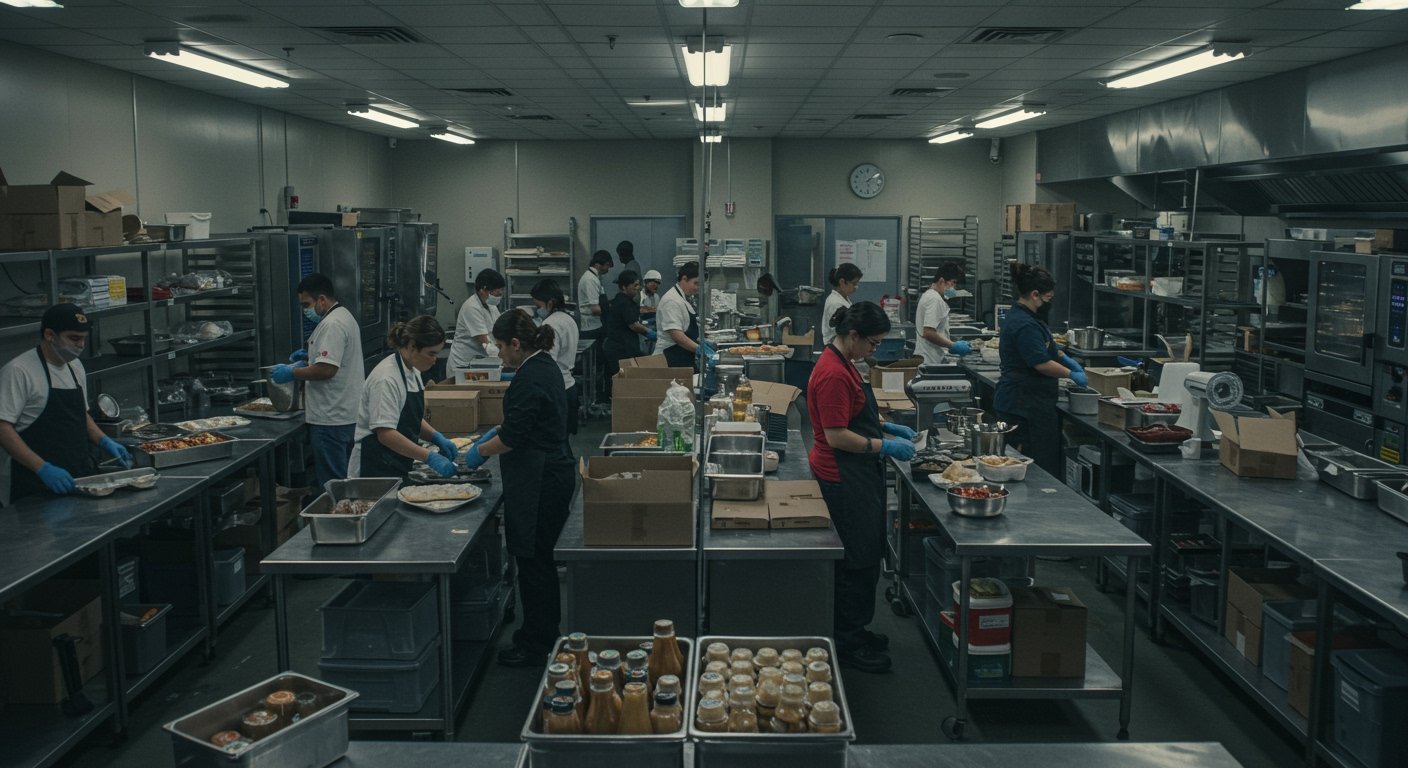SAN LEANDRO, CA – More than 100 mom-and-pop food businesses and charities operating across the East Bay are confronting a precarious future following the announcement of the impending closure of a critical commissary kitchen facility in San Leandro. The shutdown poses a significant disruption to these small enterprises and non-profit organizations that rely on the shared space to prepare their products and meals, according to a report by CBS San Francisco.
The facility, which serves as a vital hub for licensed food preparation, provides an essential service for businesses that lack their own commercial kitchen space. For many, operating from a commissary kitchen is the most financially viable and legally compliant way to launch or sustain a food-related venture, from catering companies and packaged food producers to meal delivery services and non-profit food distribution programs.
The Crucial Role of Commissary Kitchens
A commissary kitchen, often referred to as a shared-use or incubator kitchen, offers licensed commercial cooking facilities that multiple food businesses can rent. These spaces are equipped with professional-grade equipment, storage areas, and meet strict health department regulations. For small businesses and startups, building or leasing their own compliant kitchen is prohibitively expensive, requiring substantial capital investment.
By utilizing a commissary kitchen, entrepreneurs can significantly reduce overhead costs, access necessary permits, and scale their operations without the burden of maintaining a full-scale facility. This model has fostered a vibrant ecosystem of small-batch producers, ethnic food vendors, and innovative culinary concepts across urban areas like the East Bay.
Impact on Vulnerable Businesses and Services
The closure in San Leandro directly impacts a diverse group of more than 100 entities. This includes burgeoning food startups run by individuals or families – the quintessential mom-and-pop operations – seeking to grow their business, alongside charities dedicated to providing food security and meals to vulnerable populations. The sudden loss of their primary, licensed production space creates an immediate and significant challenge.
For these businesses, the closure means an abrupt end to their ability to legally prepare and sell food. Finding a new, affordable, and available licensed kitchen space in the competitive East Bay market is a daunting task. The process involves not only locating a suitable facility but also navigating contractual agreements and potentially new licensing requirements, all of which take time and resources that many small operations simply do not possess.
Charities face equally dire consequences. Many rely on commissary kitchens to prepare large quantities of meals for distribution to homeless shelters, community centers, or individuals in need. The closure jeopardizes their capacity to continue these essential services, potentially leaving communities without a critical source of food aid.
Business owners who spoke to CBS San Francisco expressed deep concern and uncertainty about their future. Many have invested years of effort and personal savings into building their brands and customer bases, all contingent on access to a licensed kitchen. The impending closure could force them to cease operations entirely, leading to job losses and the disappearance of unique local culinary offerings.
The Search for Alternatives and Community Response
The operators affected are now urgently scrambling to find alternative arrangements. However, the supply of licensed commissary kitchen space in the East Bay is limited, and costs can vary widely, often higher than what many of these businesses are currently paying. The logistical challenges of moving equipment, relocating operations, and securing new rental agreements add further complexity to an already stressful situation.
The situation highlights the fragility of the support infrastructure available to small food businesses and non-profits. While the reasons behind the specific San Leandro kitchen’s closure were not detailed in the initial report by CBS San Francisco, the outcome underscores the vulnerability of enterprises dependent on shared resources.
Community leaders and local business advocates are reportedly exploring potential solutions, though immediate options appear scarce. The focus is on identifying other available kitchen spaces, advocating for flexible transitional arrangements, and potentially exploring long-term solutions like the development of new, publicly or privately supported commissary facilities.
Looking Ahead
The coming weeks will be critical for the more than 100 food businesses and charities impacted by the San Leandro kitchen closure. Their ability to navigate this crisis will depend on the availability of suitable alternatives and the potential for community support or intervention. The situation serves as a stark reminder of the vital role that shared resources play in fostering local entrepreneurship and supporting critical social services within the East Bay community.
The uncertain future facing these businesses and charities is a significant concern for the local economy and social fabric. As they brace for the closure, the urgency of finding sustainable solutions becomes increasingly apparent to prevent the widespread disruption of the East Bay’s vibrant food scene and essential charitable work.




















lkjdretlvssss http://www.yandex.ru